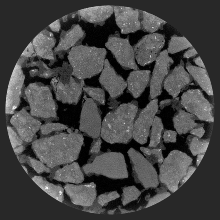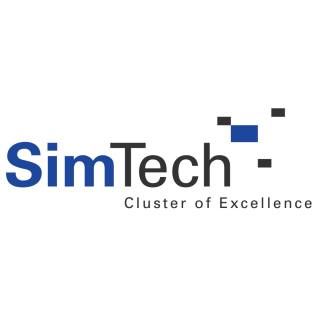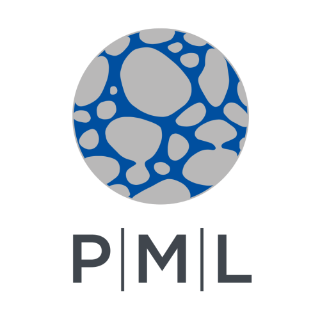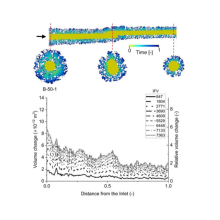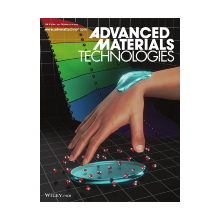Brief introduction of the Chair of Continuum Mechanics
The researchers of the Chair of Continuum Mechanics have been working in the field of elastomeric and polymeric materials for several years (more information contained in tab (A)).
Further activities of the chair spread over a wide field of problems including multi-scale investigation of multi-phase materials and continuum-thermodynamics of porous materials and mixtures including coupled swelling phenomena of hydrogels (cf. tab (B)).
The Chair of Continuum Mechanics established the Porous Media Lab (PML) as a new shared laboratory at the University of Stuttgart (see tab (C)).
(A)
Besides theoretical and experimental work on polymers, polymer films and shape memory polymers at large deformations, numerical modeling approaches for different functional properties of polymers have been developed and numerically implemented into in-house Finite Element solvers (PANDAS) as well as in commercial Finite Element packages (Abaqus, MSC Marc). The experimental facilities in the group of Continuum Mechanics are focusing on stimuli-based mechanical characterization (based on multiaxial torsion/tension test equipment, shear rheometer and torsional dynamic mechanical thermal analysis equipped with temperature chambers and environmental/humidity chambers for soft materials). During the last years, advanced rheological characterization of thermo- and solvent-responsive polymers allowed for a deeper insight in the complex material behavior of polymer materials and, especially, has been elaborated as the physical basis for continuum-based models for functional materials.
(B)
Recently developed consistent computational homogenization techniques (diffusion on small-scale ⇔ effective, i.e. viscoelastic properties on larger scale) are the basis for numerical scale-transition techniques. In addition, the group does active research in the field of physical modeling of multi-phase materials like fluid-saturated porous media. Common to most applications are diffusion-like phenomena like pressure-diffusion in poroelasticity or solvent-diffusion in hydrogels. Efficient Smoothed Particle Hydrodynamics (SPH) solvers for Newtonian and non-Newtonian fluids for high Reynolds numbers have been developed and implemented on massive parallel (CPU and GPU) computer architectures. This allows for Direct Numerical Simulations (DNS) on the length scale of materials' heterogeneities (e.g. pore space of porous materials) in order to numerically determine effective 'diffusive' properties of heterogeneous media, like permeability tensors.
(C)
The core characterization tool of the PML is the in-house developed open X-ray Computed Tomography (µXRCT) device which allows the combination of physical experiments and image-based characterization. Further main facilities (µPIV, open microscopes etc.) are related to microfluidic investigation of porous materials.
The latest announcements of the Chair of Continuum Mechanics
Contact:

Holger Steeb
Prof. Dr.-Ing.Institute Director
[Image: Holger Steeb]

Sekretariat
Secretary
[Image: Sälzer-Sekundarschule]


